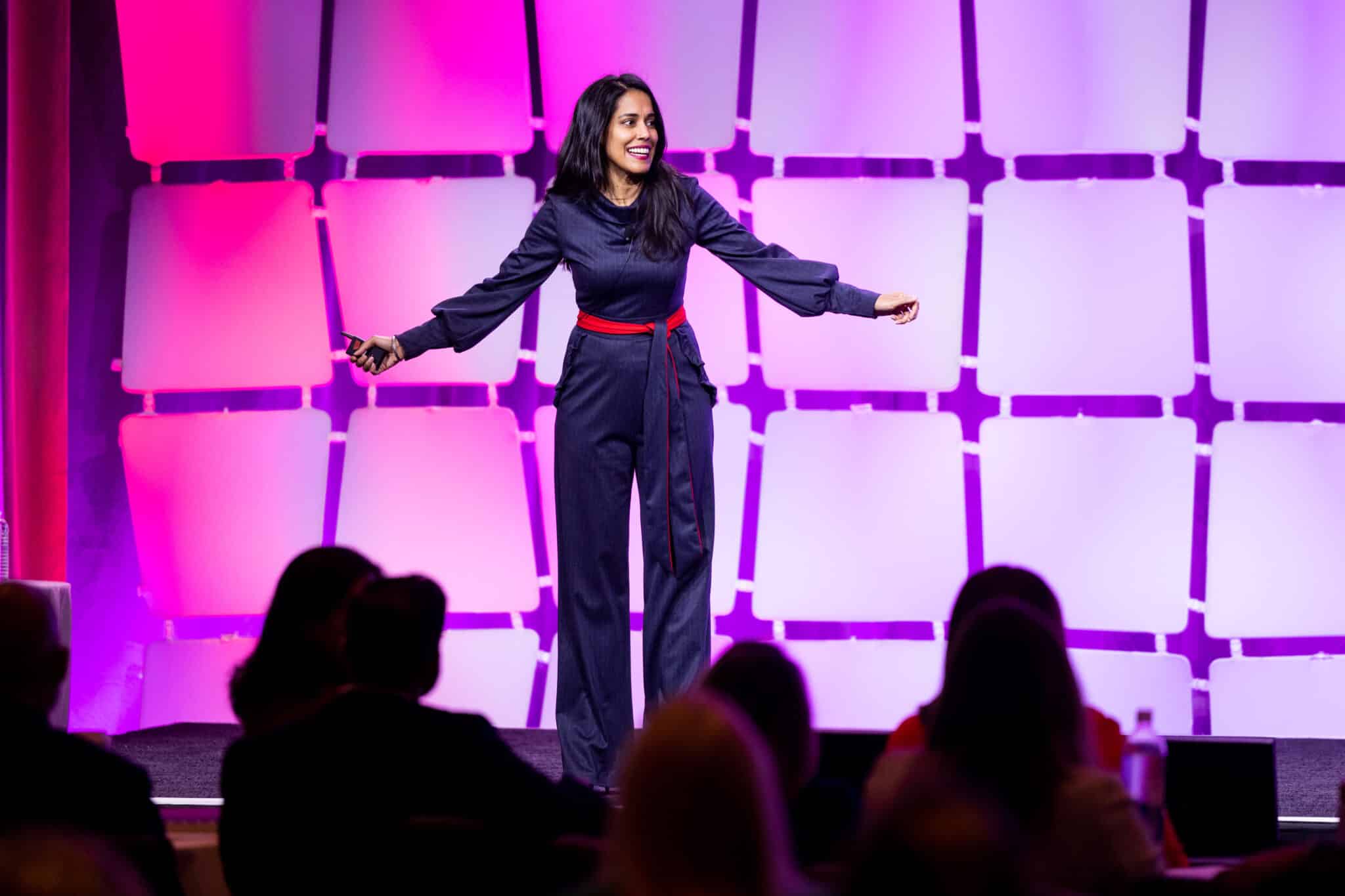Why Minimization Is the Enemy of
Belonging in the Workplace

“At our organization, we deeply value inclusion and belonging, and we encourage every team member to bring their authentic selves to work.”
– Said by every organization out there!
In bhasin consulting inc.’s inclusive leadership work, we leverage the Intercultural Development Inventory (IDI), a highly effective assessment tool for measuring inclusion and belonging in the workplace.
We’ve now administered the IDI to several thousand professionals globally, and here’s what we’ve found: the overwhelming majority of organizations (and leaders) fall in the developmental stage of “Minimization”.
When an organization is in Minimization this means that, while there may be a stated commitment to embracing differences and cultivating belonging in the workplace, the lived experience is very different – it’s one of conformity, sameness, and exclusion, because:
- Differences are pushed down and instead the focus is on connecting across sameness, and
- People are expected to conform to the dominant behavioral norms within the organization to advance in their careers
In Minimization cultures, when the “voices of difference” (i.e. people who look and/or behave outside the dominant culture of the leadership) join the organization, the message that they essentially get is: “We love differences. But… you can look different, but not too different. And, more importantly, you need to behave like the rest of us. Be the same!”
Fundamentally, the message is, “Be your Performing Self!“– i.e., minimize your preferred ways of behaving and instead mask and change who you are, including across the Seven Behavioral Dimensions. And this is why Minimization is a behavioral bias.
Ultimately, when we downplay our differences and/or hide aspects of our identities because of Minimization, we’re pushing down our authenticity – thereby directly striking at our sense of belonging in the workplace. And of course, this matters for every single team member within an organization, but its impact is particularly profound for professionals from communities that continue to experience bias, underrepresentation, and marginalization in the workplace.
So how can we interrupt Minimization in our workplace cultures? This has been the focus of our work at bhasin consulting inc. for almost fifteen years now, and there are several strategies and resources we’d like to offer you:
- Engage in Self-Reflection – As a leader, learn about who you are culturally so that you can deepen your understanding of your behavioral preferences and related biases. Check out my Empower Page on Building Your Cultural Lens.
- Interrupt Your Biases – Tap into tools to help you to interrupt your biases, like Harvard’s Implicit Association Tests and bci’s playlist on Understanding Bias, plus our free bias tip sheets.
- Leverage my Three Selves Framework™ – The Three Selves Framework™ is a model for cultivating greater belonging in the workplace. Learn more by reading Part 1 and Part 2 of my blogs on this transformative approach to leadership.
- Deepen Your Understanding of the Seven Behavioral Dimensions – As I share in this blog, the Seven Behavioral Dimensions are key areas in which we impact our team members’ ability to be authentic at work – which is why you’ll want to deepen your understanding of this concept.
- Be More Authentic in How You Live, Work, and Lead – Belonging is the outcome of authenticity. As a leader, you want to model what it looks like to be authentic and vulnerable at work. Learn more about authentic leadership in my bestselling book The Authenticity Principle.
- Grow Your Core Wisdom – As a leader, your Core Wisdom will help you address Minimization because you’ll be more attuned to: interrupting your biases, coaching for inclusion, being empathetic, and cultivating belonging. Learn more about how to grow your Core Wisdom in my award-winning and bestselling book We’ve Got This.
While Minimization is the enemy to inclusion and belonging, as you can see, there are several steps we can take as leaders, to cultivate an organizational culture where everyone can thrive and soar – including ourselves.
I hope you’ll join us in our efforts to interrupt Minimization in workplace cultures (and society at large)!
Finally, I’d love to hear from you! Please send me a message through our Contact Us page, LinkedIn, or Instagram.
Reach out to the bci team here to learn more about our range of cutting-edge programming on how to cultivate inclusion in the workplace.
If you’re looking for more resources on how to interrupt Minimization and create cultures of belonging, empathy, psychological safety, and inclusion, check out:
- Articles:
- bci’s tip sheets:
- My authenticity worksheets:
- My bias worksheets:
- bci’s dedicated playlists:
- My podcast interview with Mel Robbins: You Are a Badass: Unlock Your Most Authentic Self in 4 Proven Steps
- Report: Sponsor Effect: Canada Executive Summary
